Polycentricity, Islam, and Development
Polycentricity, Islam, and Development
Potentials and Challenges in Pakistan
Anas Malik
LEXINGTON BOOKS
Lanham Boulder New York London
Published by Lexington Books
An imprint of The Rowman & Littlefield Publishing Group, Inc.
4501 Forbes Boulevard, Suite 200, Lanham, Maryland 20706
www.rowman.com
Unit A, Whitacre Mews, 26-34 Stannary Street, London SE11 4AB
Copyright 2018 by Lexington Books
All rights reserved . No part of this book may be reproduced in any form or by any electronic or mechanical means, including information storage and retrieval systems, without written permission from the publisher, except by a reviewer who may quote passages in a review.
British Library Cataloguing in Publication Information Available
Library of Congress Cataloging-in-Publication Data
Names: Malik, Anas, author.
Title: Polycentricity, Islam, and development : potentials and challenges in Pakistan / Anas Malik.
Description: Lanham, Maryland : Lexington Books, 2018. | Includes bibliographical references and index.
Identifiers: LCCN 2017056984 (print) | LCCN 2017044498 (ebook) | ISBN 9781498539760 (electronic) | ISBN 9781498539753 | ISBN 9781498539753 (cloth : alk. paper)
Subjects: LCSH: PakistanPolitics and government20th century. | PakistanPolitics and government21st century. | Islam and politicsPakistan.
Classification: LCC JQ629.A58 (print) | LCC JQ629.A58 M347 2018 (ebook) | DDC 320.95491dc23LC record available at https://lccn.loc.gov/2017056984
 The paper used in this publication meets the minimum requirements of American National Standard for Information SciencesPermanence of Paper for Printed Library Materials, ANSI/NISO Z39.48-1992.
The paper used in this publication meets the minimum requirements of American National Standard for Information SciencesPermanence of Paper for Printed Library Materials, ANSI/NISO Z39.48-1992.
Printed in the United States of America
Contents
Bismillah-ir-Rahman-ir-Rahim. In the Name of God, the Compassionate, the Merciful. I start in the name of God as is the common practice of Muslims. Additionally, this beginning situates my identity as a Muslim of Pakistani origin, and also frames the books subject, which emphasizes the religious and cultural context for governance and development in Pakistan and Islamic contexts. Also in keeping with the long-standing Muslim tradition, I acknowledge the fallibility of this endeavor, and end with Allahu alam, meaning God knows best.
In thinking about development, it is widely assumed that a central political authority is the primary, and often exclusive, rule-giver. An alternative view is that many spheres of collective decision-making coexist and that a well-functioning polycentric society requires a shared understanding about how these interrelate. This book is an exploration of the latter view, its foundations in social science, particularly in relation to post-colonial contexts, its potential rationales in the Islamic tradition, and its appearance in the Pakistani context. My training is as a political economist rather than in theology or religious law, and I hope specialists in those and related areas will engage critically with this effort. My goal is to generate and add to conversations about the potentials for a polycentric order in developing contexts, particularly where Islam is politically salient, in Pakistan and beyond.
My primary intellectual debt for this project lies with Vincent and Elinor (Lin) Ostrom. As a graduate student in the mid-1990s, I participated in the Ostroms yearlong seminar. Vincent responded to my weekly memos with lengthy, thoughtful responses. At the same time, I noted some severe contestation in our local Muslim community in Bloomington over rules. Looking back, I can see that the genesis of this project lies in those memo exchanges and my local experience. Much later, in 2012, Lin provided feedback on an early draft of this book. She was generous with her time and energy. Mike McGinnis invited me to the Workshop as a visiting scholar, and his support and feedback have been critical to this project from its early stages. Mike also suggested the book draft party that provided lots of food for thought and revision. Dan Coles seminar and our many conversations have also been very helpful for this and related efforts.
I am deeply grateful to participants in the book draft party, who offered numerous comments and suggestions: Shafqat Saeed, Nazif Shahrani, Yusuf Nur, Sumit Ganguly, Kevin Jaques, Ahmed Khanani, Forrest Fleischman, Mohammad Zubeir, Gustavo Garcia-Lopez, Ryan Brasher, Joseph Woldense, Shelley, Faraz, and Jesper Larsson. Special thanks go to various participants at colloquiums, particularly Eduardo Brondizio, and to staff at the Workshop, particularly Ray Eliason and David Price, for their logistical help. I also acknowledge helpful interactions with AbdelKader Sinno and Asma Afsaruddin. In addition, Wael Hallaq provided thoughtful feedback regarding what has become Chapter 3. Mirjam Kuenkler provided valuable critical feedback on an early draft of a journal article related to this study. I also thank Ahmet Kuru, for his thoughtful responses, and Andreas Thiel, for related collaborations. I also acknowledge useful conversations with Ingrid Mattson, Waleed El-Ansary, James Buchanan, Kathleen Smythe, Jason Nicholson, and students over several courses, as well as all others I have neglected to mention by name. Of course, I bear sole responsibility for all errors.
Finally, my gratitude and love to my family.
In developing countries, and particularly in Muslim-majority contexts, much attention has been paid to diversity in ideas, identities, and interests. Less attention has been paid to diversity in institutions. Institutions are the rules that shape behavior in recurring situations. Institutions can serve to overcome collective action dilemmas and improve social outcomes in specific contexts. Many variables relating to social-ecological contexts and the characteristics of people and communities contribute to institutional diversity. In many local settings, people have devised remarkably durable and effective institutions, often outside the purview of official, formal, state-legitimated rules. In studying development, a key question is how well a polity can draw on its cultural endowment, national self-conception, and learning processes to productively accommodate diverse institutions.
In many postcolonial developing countries, governance is presumed to be primarily monocentric, where the governmenttypically a central state jurisdictional authorityis the main rule-giver. Yet monocentric government has difficulty with diverse social-ecological contexts, tending toward one size fits all policy solutions that have unintended negative consequences, as well as the risk of large disasters commensurate with the large-ness of policy ambitions. Further, the limited political capacity of central state authorities often means that state managers cannot fully implement grand policy plans, while nevertheless having the capacity to disrupt informal or unacknowledged institutional arrangements that structure local interactions.
One alternative is polycentricity, which means that government is not a monolithic, top-down phenomenon. Instead, there are varied associations that retain, select, and devise rules that constitute collective choice arrangements and shape social interactions at multiple levels. Cultural endowments and national self-conceptions can potentially support polycentric order. Consciousness of polycentric potentials, particularly among elites and policy analysts at all levels, can help improve adaptive capacities and resilience and reduce dysfunction. This book argues that there is substantial potential for a polycentric metanorma mindset and intersubjective orientation that supports polycentric orderin developing polities in which there is an Islamic national self-conception. The argument is supported by exploration of the collective choice units in developing country contexts generally, through rationales for polycentric governance in Islamic tradition, exploratory interpretative case study of Pakistan that includes an examination of national self-conception in its nascent period, and a survey of selected collective choice units. The final chapter looks at other conditions that, jointly with the polycentric metanorm, may contribute to or detract from a well-functioning polycentric order, and related areas for further research.

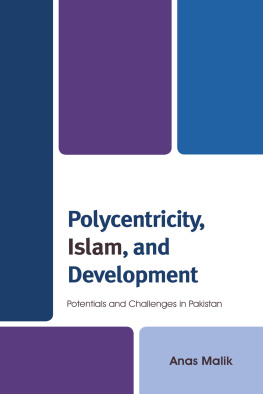

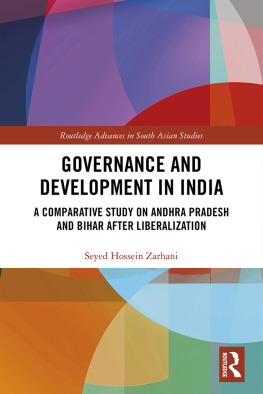

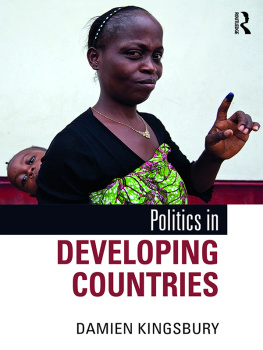
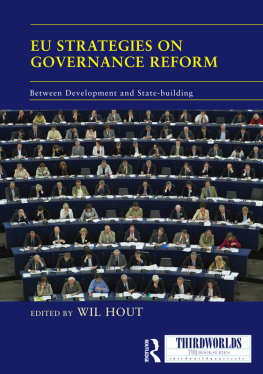
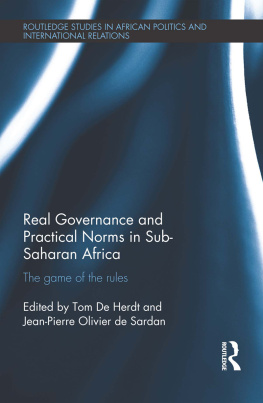
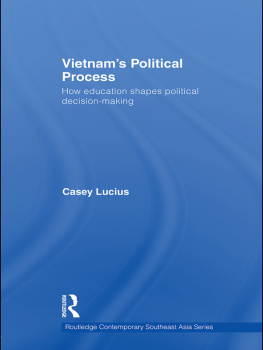
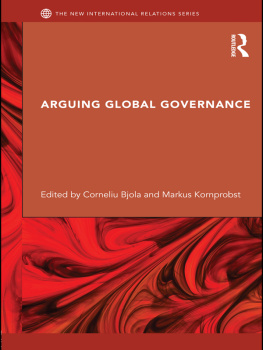
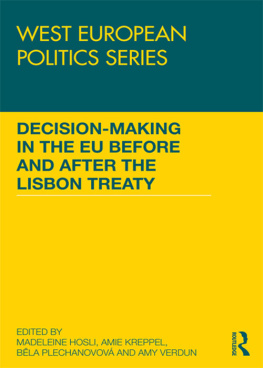
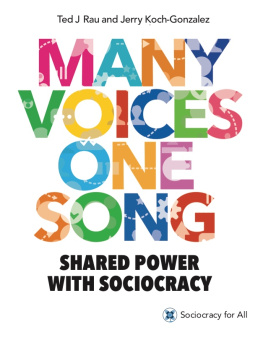
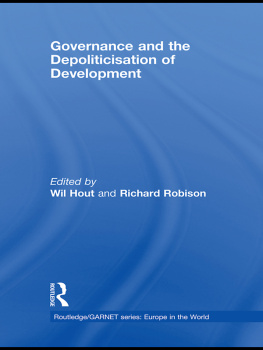


 The paper used in this publication meets the minimum requirements of American National Standard for Information SciencesPermanence of Paper for Printed Library Materials, ANSI/NISO Z39.48-1992.
The paper used in this publication meets the minimum requirements of American National Standard for Information SciencesPermanence of Paper for Printed Library Materials, ANSI/NISO Z39.48-1992.